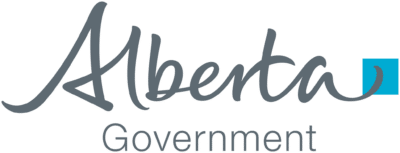Business owners purchase insurance for various reasons, primarily to protect their investments and ensure financial security. Insurance is crucial for meeting lease requirements imposed by building owners and securing loans from banks. Before buying insurance, understanding the significance of the policy document, implementing loss prevention measures, selecting the right insurance provider, and exploring cost-saving options are essential. Business owners can safeguard their investments by prioritizing insurance and achieving peace of mind in the face of potential risks and uncertainties.
Insurance – Is it an investment or an expense?
Imagine dedicating countless hours and significant money to building and growing your business. It’s not just a way to make a living; it’s your passion and how you support yourself and your family. But what happens if a fire destroys your physical store, or a client sues you for causing them harm? That’s where insurance comes in.
Insurance is like a safety net for your business. You pay premiums to an insurance company, and they promise to help you if something bad happens.
If a fire devastates your business, insurance can provide financial support to help you rebuild. Knowing you have someone to turn to in times of trouble gives you peace of mind. Insurance allows you to take risks and pursue your dreams, knowing you have a backup plan if things go wrong. So, just like saving for retirement, insurance protects your business and ensures it can survive unexpected challenges.
Managing Risks: Basic Steps for a Successful Risk Management Program

The risk of experiencing a loss based on historical data plays a huge role in developing insurance companies’ premiums. A good risk management program is one way to keep your premiums lower.
It helps us identify, assess, and deal with potential risks. Here are some basic steps to follow for an effective risk management program.
Step 1: Identify Risks
The first step is to identify the risks that could happen. This means thinking about what could go wrong and how it could impact us. For example, if you are selling a product, improper labelling outlining the risks of a product could leave you open to a liability claim.
Step 2: Assess Risks
Once risks are identified, we need to assess them. This involves understanding how likely a risk is to happen and how severe its impact could be. By evaluating risks, we can prioritize and focus on the most significant ones.
Step 3: Manage Risks
Managing risks means taking action to reduce or eliminate them. This could involve implementing safety measures, creating emergency plans, or seeking expert advice. By managing risks, we can minimize their negative effects. Insurance is part of managing those risks. You are transferring the risk to an insurance company in exchange for the premium.
Step 4: Monitor and Review
After implementing risk management measures, monitoring and reviewing them regularly is crucial. This allows us to adapt and improve our strategies if needed. We can ensure that our risk management program remains effective by staying vigilant.
Conclusion:
Having a risk management program is essential for handling potential risks in various aspects of life. We can better protect ourselves and others by following these basic steps – identifying, assessing, managing, and monitoring risks. Remember, risks can be unpredictable, but with a solid risk management program, we can face them confidently and strive for safer and more successful outcomes. That leads us to the next topic.
Choosing Your Insurance Provider
Selecting the right business partners, such as lawyers, accountants, coaches, and insurance providers, is crucial for the success of your business. Regarding insurance, you have two options: Direct Writers and Insurance Brokers. Direct writers have sales agents who can only offer products from their specific insurer. On the other hand, Insurance Brokers represent multiple insurance companies and can compare coverages and premiums from different markets based on your business needs.
Contrary to common belief, direct writer insurance is not always cheaper because they don’t involve a broker. Both direct writers and brokers are compensated through commissions or salaries, which are factored into the premium cost.
While using the internet for insurance research is common, it’s important to understand the terms and conditions before purchasing. Recently, I assisted a client who used an online quoting service but discovered that the coverage was limited to Canada while their sales also extended to the US. Choosing that coverage would have left them unprotected in case of liability claims arising from US sales.
Therefore, it’s essential to choose your insurance provider wisely. Consider their education, experience, understanding of your business, reputation, and referrals. A good provider should thoroughly review your business operations, recommend suitable coverage, and assist with risk management program review or development. Finally, be wary of any provider who takes a copy of your policy and quotes a new price without discussion or recommendations.
By making informed choices, you can protect your business adequately and minimize potential risks.
Additional Ways to Save Money

Before discussing additional ways to save money, it’s crucial to understand the importance of having the right amount of insurance. Underinsuring your property or business interruption coverage can lead to penalties due to policy clauses. Your insurance provider can explain this further, and you can also refer to this blog on co-insurance for more information.
Now let’s explore some ways to save on insurance potentially:
- Deductibles: A deductible is the amount you pay before the insurance company covers the rest. Choosing a higher deductible can result in lower premiums.
- Credit Scoring: Some insurance companies consider your credit score when assessing risk. A good credit score may lead to discounts on your premiums.
- Alarm Discounts: Installing burglar, fire, smoke alarms, and water sensors can reduce losses by providing early alerts. Insurers often offer additional discounts for having these safety measures in place.
- Claims-Free Discounts: Maintaining a claims-free record over time demonstrates responsible behaviour and can lower the insurer’s risk, resulting in potential discounts. Choosing a deductible, one you are comfortable with, may assist in maintaining that deductible.
- Professional Group Discounts: Insurance providers may offer discounts to members of professional organizations or specific groups, such as military personnel, teachers, or healthcare professionals.
Remember that discounts vary among insurance companies, so it’s important to inquire about available discounts and eligibility criteria with your provider.
By understanding these potential ways to save, you can make informed decisions and reduce your insurance costs while maintaining adequate coverage.
Summary
Protecting your business investment is essential, and insurance is crucial in ensuring its security. Insurance acts as a safety net, providing financial support in case of unforeseen events like fires or liability claims. A well-implemented risk management program helps identify, assess, and manage potential risks, minimizing their impact. By following the steps of risk identification, assessment, management, and regular monitoring, we can protect our businesses effectively.
Choosing the right insurance provider is vital. Direct writers and insurance brokers offer different options, and it’s important to consider factors such as education, experience, and understanding of your business. Contrary to common belief, direct writer insurance may not always be cheaper.
By understanding the importance of insurance, implementing risk management measures, and exploring savings opportunities, you can secure your business while optimizing financial resources.
“Protect your business investment, secure its future with insurance, and save money along the way.”
 Heather Cournoyer, CCIB, CIP, CMGA
Heather Cournoyer, CCIB, CIP, CMGA
Senior Account Executive, Thor Insurance & Registries Ltd.
Heather is a highly experienced insurance professional with over 35 years in the industry. She serves a diverse range of business owners helping them to protect their business investments. Additionally, she consults with consumers and other insurance organizations for education, advocacy, and dispute resolution. Heather’s designations and accomplishments demonstrate her commitment to client protection and fair treatment, while her motto reflects her belief in the importance of giving back.
Her Motto: “We make a living by what we get; we make a life by what we give.”






